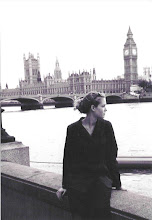Still pushing through my obsession with covering the classics from a pleasure reading approach, I decided it was finally time to take on Emily Bronte’s Wuthering Heights. All I had heard of it was that the main characters are horrid and the mood is chilly. Thus, I approached this work with some apprehension. I was not at all prepared to absolutely love it.
Title: Wuthering Heights
Author: Emily Bronte
My start date: 9/1/10
My finish date: 9/6/10
Book count: 47/100
I had previously read one of the works of another Bronte sister, that is, Charlotte Bronte’s Jane Eyre. While I found that experience to be alright, I was not especially impressed with it. For some reason, I projected this feeling on the other works of the Bronte sisters. I have no idea why, but in the back of my mind, I assumed that reading any work by any of the sisters would be similar. This makes no sense. My sister and I are equally brilliant, however in utterly different ways and I can guarantee that if we were to write novels, they would have very little in common. So why on earth should I assume that the Bronte sisters would be any different? This proved to be the case and I was completely swept up into Emily’s work.
The rumors in regards to the main characters of this work are absolutely true. Catherine and Heathcliff are unabashedly detestable individuals. They are selfish, scheming, whining, and at times just plain evil. Yet, I adore this about them. They are so passionate in who they are. The fact that they are so wretched adds so much depth to the extent of their love for each other. You can absolutely fall into the depths of their passion. It sweeps you away.
I was not expecting Wuthering Heights to be presented in the forms that it was and I found the setup very pleasing. First, the book is an epistolary novel, which was still enjoying some popularity at the time, and which means that the work is presented either as a series of letters or diary entries. In this case it was the diary of a man who had come to live on the estate. I was initially confused as to why the first person diary approach of a completely unrelated character was being used. I kept wondering when we would shift to the perspective of either Catherine of Heathcliff, since they are who I recognized. However, I soon came to realize how important that incremental and distanced approach was to grasping the feeling of the novel. Further, I especially enjoyed the use of another technique, for which I am unfortunately only familiar with the German word, but essentially the idea is that a story is told within the story. A frame is created, and that is the story of Mr. Lockwood arriving on the estate and becoming curious about the estate owners. Thus, the housekeeper begins to tell him an inner story, that of the history of the owners of the estate. I could go into a long essay of what the purpose of this kind of structure would be, in the style of a long master’s exam response, but I won’t bore you with that. Suffice it to say that it works and adds delightful chill.
I can’t say a whole lot more, except that I encourage you to give this work a try. Many have been kept at bay by the stories of unlovable characters in depressing stories, but don’t fear this! It works, really! I have also heard many say that they had read it and found it boring. Give it one more try! Most probably read this as part of a course requirement and, let me tell you, pleasure reading makes a huge difference.
That's it for this one! Keep Reading!
Sarah
Subscribe to:
Post Comments (Atom)

No comments:
Post a Comment